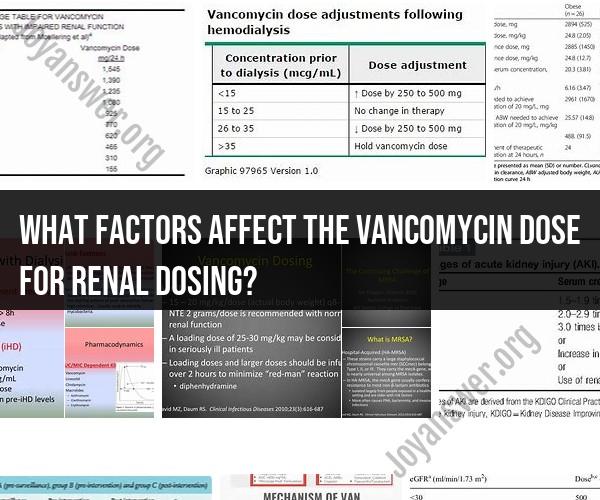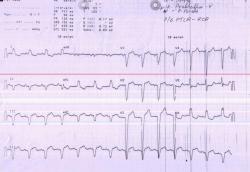What factors affect the vancomycin dose for renal dosing?
Vancomycin is an antibiotic commonly used to treat serious bacterial infections, and its dosing regimen often needs to be adjusted in patients with renal impairment to ensure both therapeutic efficacy and patient safety. Several factors can affect the vancomycin dose when renal dosing is required:
Renal Function: The primary factor affecting vancomycin dosing in renal impairment is the patient's kidney function, typically assessed by the estimated glomerular filtration rate (eGFR) or creatinine clearance (CrCl). In general, as renal function decreases, the elimination of vancomycin slows down, leading to the potential for drug accumulation in the body. Dosing adjustments are made based on the degree of renal impairment.
Serum Creatinine Levels: The serum creatinine level is a key biomarker used to estimate renal function. Changes in serum creatinine levels can indicate worsening or improving renal function and may prompt dose adjustments. Frequent monitoring of creatinine levels is essential when using vancomycin in patients with renal impairment.
Age: Age can influence renal function, and older adults may have reduced renal clearance compared to younger individuals. This may necessitate dose adjustments in elderly patients to prevent vancomycin accumulation.
Body Weight: Vancomycin dosing is often based on the patient's body weight, with dosages typically expressed in milligrams per kilogram (mg/kg) of body weight. Adjustments may be necessary for patients who are significantly underweight or overweight.
Patient-Specific Pharmacokinetics: Some patients may have altered pharmacokinetics that affect how vancomycin is absorbed, distributed, metabolized, and eliminated. Factors such as genetics, concomitant medications, and disease states can impact individual drug metabolism.
Dosing Regimen: The frequency of vancomycin dosing can vary based on the specific regimen used. For example, extended-interval dosing (e.g., once-daily dosing) may be employed in certain situations, which can affect the total daily dose.
Infection Severity: The severity and location of the infection being treated can influence vancomycin dosing decisions. Serious infections may require higher doses, even in patients with renal impairment, to achieve adequate therapeutic levels.
Therapeutic Drug Monitoring (TDM): Therapeutic drug monitoring involves measuring vancomycin concentrations in the blood to ensure that therapeutic levels are achieved and maintained while avoiding toxicity. TDM is particularly important in patients with renal impairment, as it allows for individualized dosing adjustments.
Coexisting Medical Conditions: Patients with comorbid medical conditions, such as liver disease or heart failure, may require dose adjustments to account for the impact of these conditions on drug pharmacokinetics and distribution.
Concomitant Medications: Some medications can interact with vancomycin, potentially affecting its pharmacokinetics. Clinicians must consider the patient's complete medication profile when determining the appropriate dose.
Treatment Duration: The duration of vancomycin therapy can also impact dosing decisions. Longer courses of therapy may require ongoing monitoring and dose adjustments to maintain therapeutic levels.
In clinical practice, a healthcare provider or pharmacist will consider these factors and use pharmacokinetic principles to calculate an appropriate vancomycin dose for patients with renal impairment. It's crucial to individualize dosing to achieve therapeutic efficacy while minimizing the risk of adverse effects, including nephrotoxicity and ototoxicity. Regular monitoring of renal function and serum vancomycin levels is essential throughout treatment to ensure optimal dosing.













